Trading Card Game Scams: How to avoid scams when buying second-hand trading cards
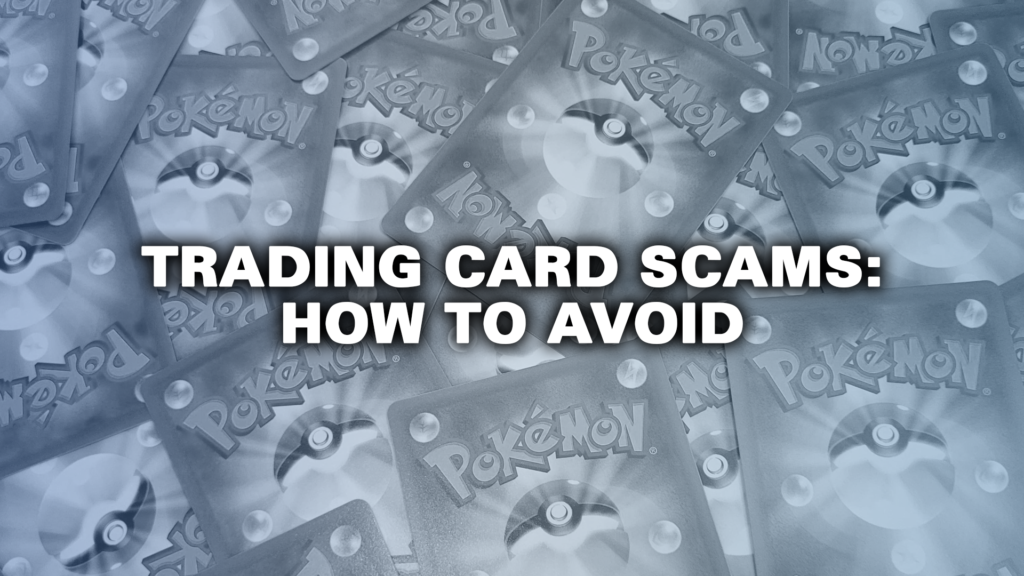
More people are choosing Neokyo to proceed with their TCG purchase from Japanese marketplaces. Whether you’re collecting Pokemon TCG, Yu-Gi-Oh, Magic: The Gathering, or a more obscure card game, you’ll be able to use one of our many marketplaces to find the cards you’re searching for.
However, fellow collectors may already know that many scammers are out there in the world of second-hand TCG sales, trying to take advantage of newcomers or people using intermediary services.
Using the insight of our Discord community and our own collective expertise, we’ve gathered some useful advice on how to spot red flags with sellers and ensure you shop safely.

Tips to avoid TCG Scams: vetting the sellers you purchase from
Whether you choose to buy from Yahoo Auctions, Rakuma or Magi, you need to screen the sellers you purchase from. It is unfortunate, but no marketplace is entirely free from shady sellers. The common point between those shops is that any private individual can quickly start selling and easily overcome a ban from the marketplace.
Here are a couple of initial tips which will allow you to review which supplier you should go for:
- Try opting for sellers who have at least a hundred reviews. We, unfortunately, witnessed scammers who were able to play their trick up to a point before people started noticing they were actually shady. Unfortunately, it is not that difficult to sell or buy cheap items to build a “credible” profile before pulling a big scam.
- Avoid profiles that have a positive review ratio below 95%. All sellers below that mark are not necessarily serial fraudsters. Still, you highly decrease the risk of getting scammed by sticking to your guns. Note that Neokyo will automatically block sellers with a high proportion of negative buyer feedback.
- You should opt for verified sellers when purchasing on Magi or Rakuma. These sellers typically have a badge or icon near their name on the original listing page.
- If the seller is applying the Japanese VAT to their listings on Yahoo Auctions,, it means they’re a company and most likely to be trusted.
- Suppose the seller listing illustrations uses the same playmat/background for each card. In that case, they are more likely to sell the actual product displayed. See below for scenarios in which sellers may be using stolen illustrations.
An example of Magi verified sellers:


Rakuma verified sellers

What are some common TCG scams that I might encounter?
Here is a list of common frauds which were unfortunately reported. Further down, we’ll provide a list of red flags and how to counter them.
1. The “sleeve not included” PSA-graded card scam.
The Professional Sports Authenticator is an American service that authenticates and grades rare trading cards, including Pokemon, Yu-Gi-Oh, and Magic the Gathering. They evaluate the item’s condition and issue a grade that reflects the card’s authenticity and state of conservation. Due to their worldwide recognition, a PSA-graded card is much MUCH worth more than a card coming as it is with a simple seller condition statement. They will always come with an official PSA sleeve and pedestal that includes a unique ID that proves the item’s authenticity.
Some Japanese sellers take advantage of this fact by creating a listing of a rare card that is illustrated with a PSA-sleeved card. Usually, the card is sold below its usual selling price. However, the seller may mention that neither the pedestal nor sleeve will be included in the item description in a way that is difficult to spot. You might get an authentic card, but that is ungraded and therefore worth way less than you paid. This scam typically targets proxy buyers who do not understand the above mention. It is frustrating as the sellers technically stay within the marketplace terms of use.
Here’s an example of a typical “no sleeve” sneaky mention:
“PSA専用のケース(特殊ホルダー)と台座はつきません。(発送のときはカード以外ないということです“
Translation:
The case (special holder) and pedestal for the PSA are not included. (This means that there is nothing but the card when shipped.)

How to spot and counter this scam:
1. Always translate the whole description, listing title, and seller profile through DeepL, and/or Google Translate and hunt for the cursed mention.
2. Do not rely only on seller feedback for your initial judgment. As mentioned above, these scammers specifically fish for proxy users, as these companies can or do not screen the purchases at such a level and will be granted positive feedback as long as the item comes to their warehouse.
3. As the seller likely used a stolen picture, use a reversed picture search engine to find if it has an original source from which it was taken. We suggest using Google Pictures or Tineye.
4. Check the seller’s whole inventory thumbnails. Avoid sellers who appear to have taken their pictures using a wide range of backgrounds, as this might further hint at a “stolen picture” case.
5. What is the usual price listing for such a graded card? Check sold-out listings as an excellent source to help verify if the price tag is too good to be true or not.
6. If the seller feedback and ratings come almost only from proxy services, that’s not a good sign. A reputable seller will usually have a mix of regular Japanese buyers and proxies if their offers are really worthy.
7. If you spot such a shady seller, report it on the #sellers-to-avoid channel on the Neokyo Discord. We might even block them to protect our whole user base.
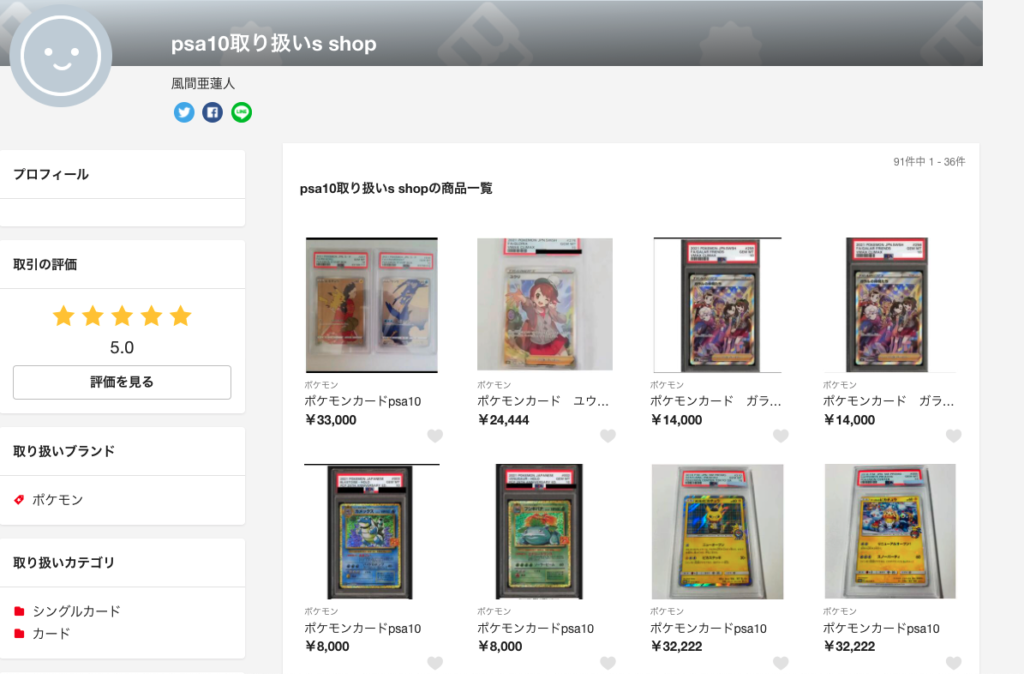
Well, actually, no. ALL listings are “sleeveless”.
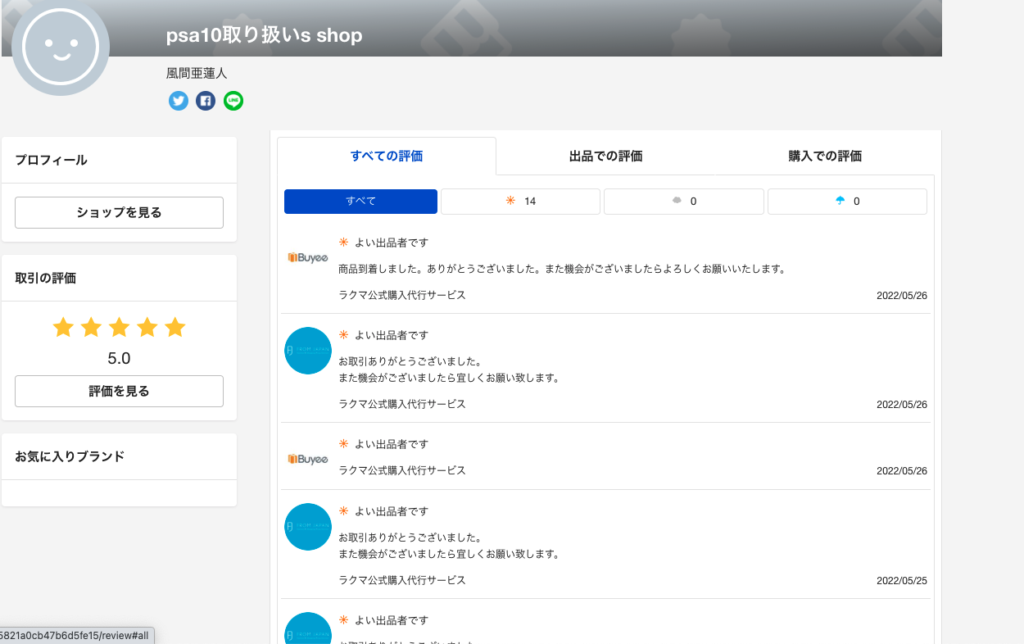
Sadly, this seller WAS a scammer.
2. The card is fake, ‘bootleg’, or doesn’t arrive in the stated condition.
Fortunately, this one is less recurring than on Western marketplaces, but you should still be on the lookout. The seller might unconsciously be selling a poorly printed copy of a highly-sought card and putting it for sale without knowing it is a knock-off. The seller may also advertise a card in poor condition using flawed illustrations.
How to spot and counter this scam:
1. As in the previous case, check the description to make sure the seller is not hinting that they’re selling a copy, bootleg, or damaged card. Beware of “Oversea versions”. Mention of “dirt” or “scratches” may imply that the card is in a deplorable state.
2. Do not rely only on seller feedback as the seller might be a consignment or pawning service that could not appraise the card quality or authenticity adequately.
3. As in the previous case, use a reversed picture search engine to investigate if the card pictures were stolen. Avoid illustrations that are cropped or blurred. Listings with only 1 or 2 photos not showcasing the card condition in detail should be avoided
4. Check the seller’s whole inventory thumbnails. Avoid sellers who appear to have taken their pictures using a wide range of backgrounds, as this might further hint at a “stolen picture” case.
5. If the seller sells multiple copies of very rare cards, this might be too nice to be true. Once again, apply the good practices mentioned in the first section.
6. Avoid English versions of cards as the Japanese sellers might have a more challenging time authenticating those cards. Those are also naturally less likely to show up on Japanese marketplaces.
7. Ask for collector insight on the #pokemon-tcg channel on the Neokyo Discord.
3. The seller is selling booster box(es), but they tampered with its content (removing the rarest cards)
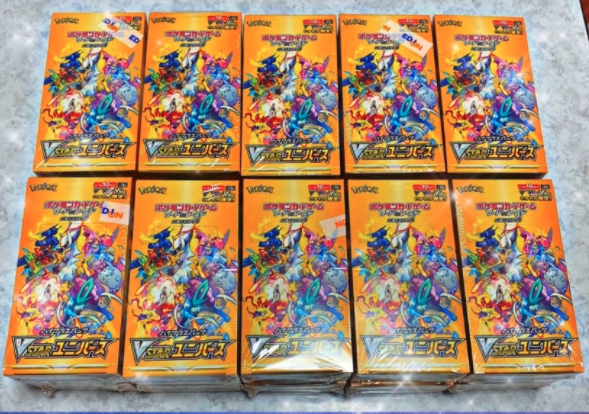
This one is the nastier of all scams. A booster pack is a box containing several boosters of the same series and expansion.
Highly looked for, especially before their release, booster packs are still the target of a specific scam model: weighing.
Simply put, the scammer buys several packs, opens them all, and weighs each booster. As rarer cards’ weight is slightly higher than common ones – due to holographic layers, for example – they’ll keep those for their use.
Once they’re done weighing everything, they’ll reconsolidate the booster packs with only the lightest boosters, which are less likely to contain valuable cards.
How to spot and counter this scam:
1. The best way to prevent this pitfall is always to check the description and opt for boxes sold with their original shrink wrap. This is the key to not being scammed, as shrink-wrap boxes are the proof they have not been opened. This scam is so common that it most sellers eventually mentions that their boxes are shrink-wrapped. As such, consider any listing not mentioning it as risky.
2. Apply the same general feedback as above: do not rely only on seller feedback, opt for sellers with a very good record of sales, and ask our Discord community if you have any questions!
4. Misleading listings with spam descriptions:
You may be searching for a specific card and find the perfect listing. But before you purchase make sure you check the information extremely carefully to avoid misleading listings.
Some listings may showcase a highly sought after, rare, or high graded card in their first few images, followed by a packet. The title and first few lines may show the cards name however, the description will be filled with a large list of filler keywords such as “SS, SR, RRR, UR, CHR, SA, RRR, RR, UR, 151, Thebestof” followed by a small disclaimer stating that they are selling the pack and the desired card is not guaranteed.
To avoid this scam, we recommend translating and reading the description carefully.
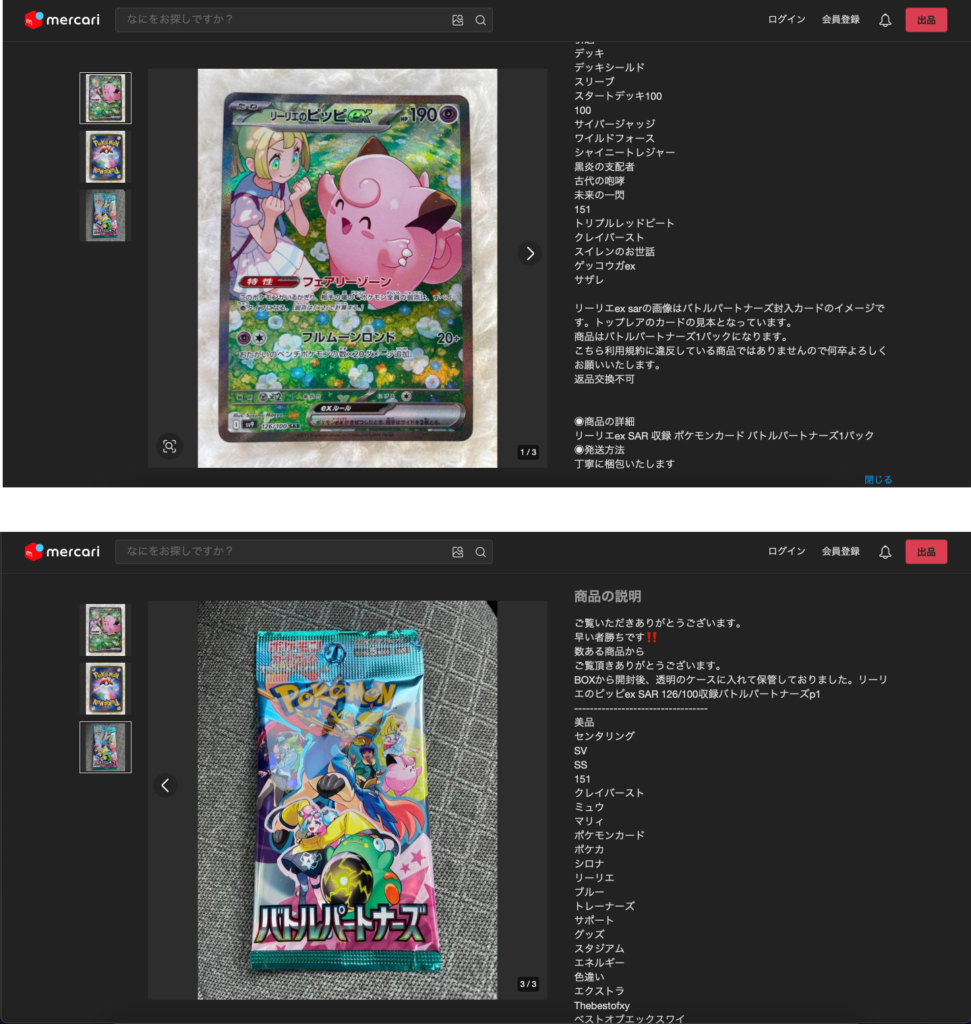
Those are the most commons kind of scams we reported in the last years.
Once again, keep in mind that Neokyo can block sellers who are obviously too shady. Our community will always be glad to assist in reviewing a seller’s profile.
If you have any suggestions or feedback regarding this article, please kindly let us know on the #pokemon-tcg channel of our Discord server.
Thank you for reading!
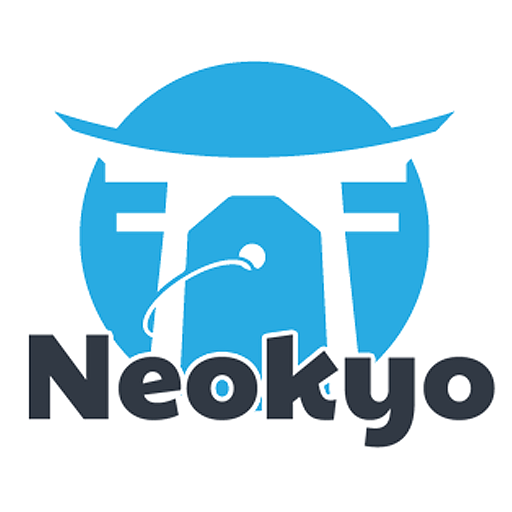


1 Response
[…] Trading Card Game Scams: How to avoid scams when buying second-hand trading cards […]